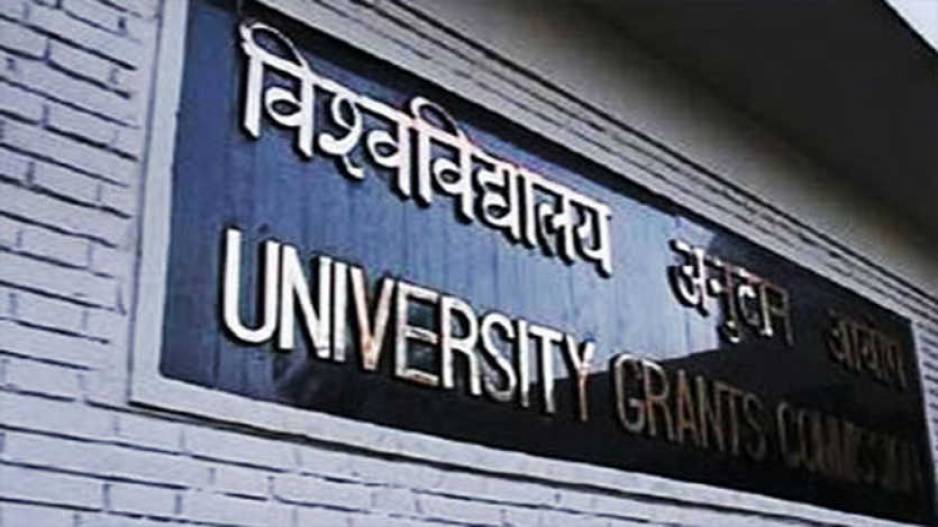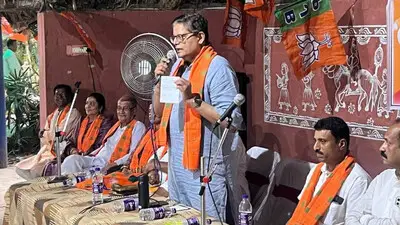Recommended Stories
The University Grants Commission (UGC) has approved a new scheme - ‘Scheme for Trans-disciplinary Research for India’s Developing Economy’ (STRIDE). Broadly, STRIDE will provide support to research projects that are socially relevant, locally need-based, nationally important and globally significant. STRIDE shall support research capacity building as well as basic, applied and transformational action research that can contribute to national prioritiers with focus on inclusive human development. STRIDE shall support creation, development and integration of new ideas, concepts and practices for public good and strengthening civil society.
Union HRD Minister Dr Ramesh Pokhriyal Nishank said that STRIDE scheme will strengthen research culture and innovation in colleges and Universities and help students and faculty to contribute towards India’s developing economy with help of collaborative research. He also added that focus on Humanities and Human Sciences will boost quality research on Indian languages and knowledge systems.
Trans-disciplinary research is a team effort of investigators from different disciplines to create new conceptual, theoretical, methodological innovations that integrates and transcends beyond discipline-specific approaches to address a common problem. Trans-disciplinary research goes beyond mere production of knowledge and extends to the practical use of the knowledge outside academic endeavour. In essence, it takes into consideration the societal impact of knowledge enunciating as what should be the main aim of research. It creates unity of intellectual frameworks beyond the disciplinary perspectives and solve problems by going beyond the boundaries of disciplines to involve various stakeholders. Trans-disciplinary research generates knowledge through use of multi and inter-disciplinary concepts and integrates new theories among science and society.
STRIDE Objectives:
To identify young talent, strengthen research culture, build capacity, promote innovation and support trans-disciplinary research for India’s developing economy and national development.
To fund multi institutional network high-impact research projects in humanities and human sciences.
STRIDE components:
Component-1 will endeavour to identify the motivated young talents with research and innovation aptitude in universities and colleges. The Scheme will provide research capacity building in diverse disciplines by mentoring, nurturing and supporting young talents to innovate pragmatic solutions for local, regional, national and global problems. This component is open to all disciplines for grant up to 1 crore.
Component-2 will be mainly to enhance problem solving skills with help of social innovation and action research to improve well-being of people and contribute for India’s developing economy. Collaborations between universities, government, voluntary organizations and industries is encouraged under this scheme. This component is open to all disciplines for grant up to 50 lakh – 1 crore.
Component-3 will fund high impact research projects in the identified thrust areas inhumanities and human sciences through national network of eminent scientists from leading institutions. Disciplines eligible for funding under this component include: Philosophy, History, Archaeology, Anthropology, Psychology, Liberal Arts, Linguistics, Indian Languages and Culture, Indian Knowledge Systems, Law, Education, Journalism, Mass Communication, Commerce, Management, Environment and Sustainable Development. Grant available for this component is up to 1 crore for one HEI and up to 5 crores for multi institutional network. To encourage high quality high impact research in humanities, there is a provision to identify experts and invite them to develop a proposal. UGC is also proposing to provide a grant of Rs 2 lakh for developing proposals.
An advisory Committee has been set up by the UGC under the chairmanship of Prof Bhushan Patwardhan, Vice Chairman to oversee the entire scheme. Details of the scheme will be available on UGC website by 8th July 2019. Call for proposals will be announced by the UGC by 20th July 2019. Applications will have to be submitted online. STRIDE web portal will be open for receiving applications by 31th July 2019.
Award of grant will be based on merit of the project proposal. STRIDE scheme proposals will be carefully evaluated with help of peer review and assessment by expert committees. Shortlisted applicants may be invited for presentation.
R. Subrahmanyam, Secretary HRD Ministry said that the National Innovation Foundation has a database of over 3 lakh technological ideas from over 608 districts waiting to be explored. STRIDE scheme will help students and faculty to undertake collaborative research to explore these knowledge resources for India’s developing economy. The ten grand challenges facing the humanities in India described in report to MHRD are part of thrust areas identified for funding under STRIDE.
UGC Chairman Prof D.P. Singh said STRIDE will provide support to the innovative research projects that are Socially Relevant, Locally Need-based, Nationally Important and Globally Significant.
UGC Vice chairman Prof Bhushan Patwardhan said that the three components of STRIDE will help strengthening transdisciplinary research culture in colleges and universities. It will provide opportunity to build multi-sectoral linkages between university-government-community-industry for national development and well-being of people. In addition, STRIDE will give major impetus to high impact research in Humanities and Human Sciences.













